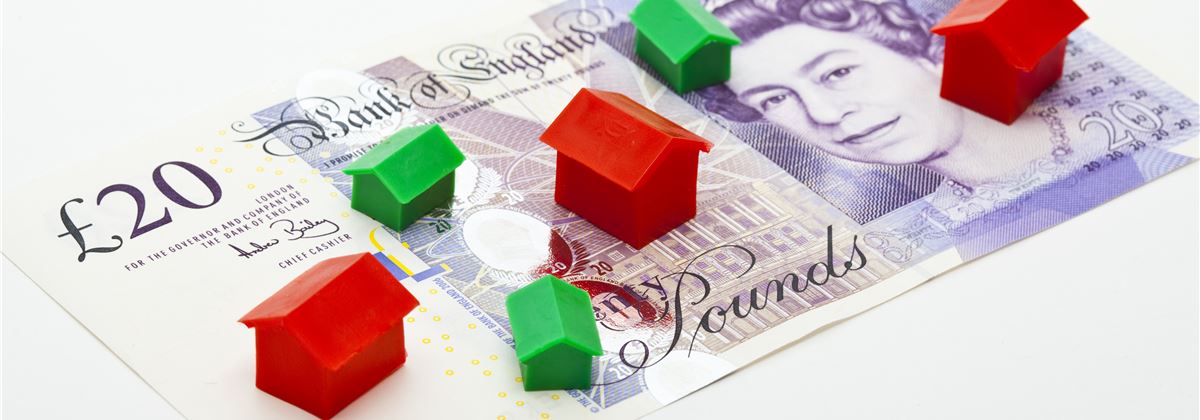Housing market continues to show resilience, but for how long?
- Average house price: £294,845
- Monthly change: +1.8%
- Quarterly change: +3.8%
- Annual change: +13.0%
The UK housing market has once again defied forecasts of a slowdown as prices have continued to rise, with average house prices up 1.8% to £294,845 in June, according to the latest Halifax House Price Index.
This increase marks the 12th consecutive monthly rise and is the biggest monthly rise since early 2007. The annual growth rate of 13% is also the highest since late 2004.
“House prices have now risen every month over the last year, and are up by 6.8%, or £18,849, in cash terms so far in 2022, pushing the typical UK house price to another record high of £294,845,” Russell Galley, managing director at Halifax, said.
According to Galley, the supply-demand imbalance continues to be the reason house prices are rising so sharply.
“Demand is still strong – though activity levels have slowed to be in line with pre-COVID averages – while the stock of available properties for sale remains extremely low,” he stressed.
“Property prices so far appear to have been largely insulated from the cost-of-living squeeze. This is partly because, right now, the rise in the cost-of-living is being felt most by people on lower incomes, who are typically less active in buying and selling houses. In contrast, higher earners are likely to be able to use extra funds saved during the pandemic, with latest industry data showing that mortgage lending has increased by the highest amount since last September.”
Anna Clare Harper, director of real estate technology platform IMMO, agreed that the main reason behind the annual house price growth is the low supply and high demand problem.
“Supply is insufficient, and new supply is too slow to meet rising demands. This problem is being made worse by uncertainty and volatility, which is making housing seem a relatively safe place to put money,” Harper said.
Rob Gill, founder of London-based Altura Mortgage Finance, commented it will take a brave person to bet against the UK property market.
“There’s every chance house prices will shrug off war in Europe and the cost-of-living crisis, albeit with more modest growth, especially as property has always been a good inflation hedge,” Gill said.
Still, many industry experts believe a slowdown is inevitable despite the resilience shown by the property market.
“The housing market will not remain immune from the challenging economic environment. In time, increased pressure on household budgets from inflation and higher interest rates should weigh more heavily on the housing market, given the impact this has on affordability,” Galley stated.
He added that Halifax’s latest research found that the strong rise in property prices over the last two years, coupled with much slower wage growth, has already pushed the house price to income ratio up to a record level.
“So, while it may come later than previously anticipated, a slowing of house price growth should still be expected in the months ahead,” Galley said.
For Imogen Sporle, head of term finance at London-based broker Finanze, it’s not a case of if house prices crash, but when.
“Whether the full crash happens this year or next, it’s coming. Demand in the property market will cool due to painfully high inflation. Inflation is the property market’s nemesis and is hitting sentiment for six,” he pointed out.
“Lenders becoming more conservative with affordability is sensible in the current climate, but of course, this will mean people can borrow less, which means sellers may soon have to price lower.”
Sundeep Patel, director of sales at specialist lender Together, believes the property market will slow this summer as households continue to contend with rising costs and other spending priorities.
“The Bank of England is expected to increase interest rates come August, creating an even more sluggish market. However, this continued challenging economic outlook could lead to a housing market correction in the coming months,” Patel noted.
Michael Aldridge, director of Bath and Chippenham-based Lucra Mortgages, thinks “the market will remain strong until the end of the year at least.”
“Beyond this, with further rate rises very likely and the jump in the energy price cap in October, then next year could be when any marked slowdown occurs. Even then, I certainly wouldn’t predict a crash,” Aldridge added.
Graham Cox, founder of the Bristol-based broker SelfEmployedMortgageHub.com, said he will be surprised if house prices aren’t falling by the end of the year at the very latest.
“We’re noticing more people holding off buying now, spooked by the economic outlook, higher mortgage rates, and the expectation that property prices will soon fall.” Cox shared.
Mark Robinson, managing director of Southampton-based Albion Forest Mortgages, however, thinks that house prices will continue to rise over the next 12 months, but almost certainly more gradually than in previous years.R
Meanwhile, Halifax’s June House Price Index also revealed high annual house price inflation in Northern Ireland, which once again topped the table with an increase of by 15.2%. This equates to an average property price of £187,833.
Wales also continues to record a strong rate of annual growth, up by 14.3%, with an average property cost of £219,281.
The South West saw the highest annual house price growth of any region in England, at 14.2%, where a typical home now costs £308,128.
Scotland too saw an increase in the rate of annual house price inflation, up to 9.9%. A Scottish home now costs an average of £201,549, breaking through £200,000 for the first time in history.
London continues to lag behind other regions in terms of annual house price inflation (+7.1%), though with an average property price of £547,031 it remains by far the most expensive place in the UK to buy a home.

